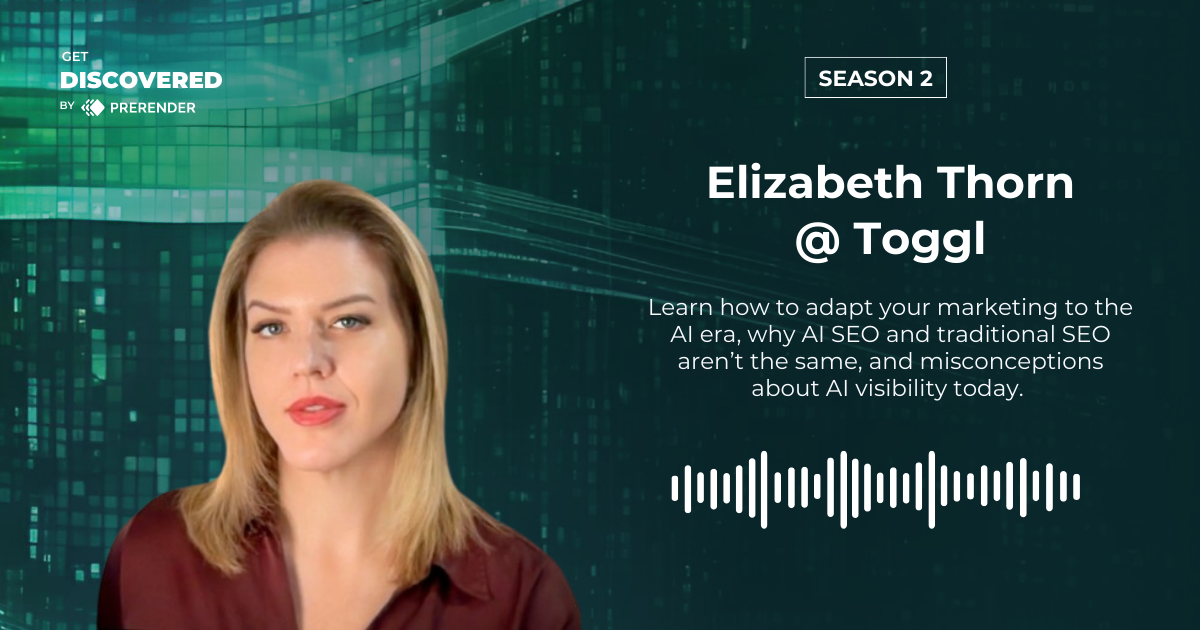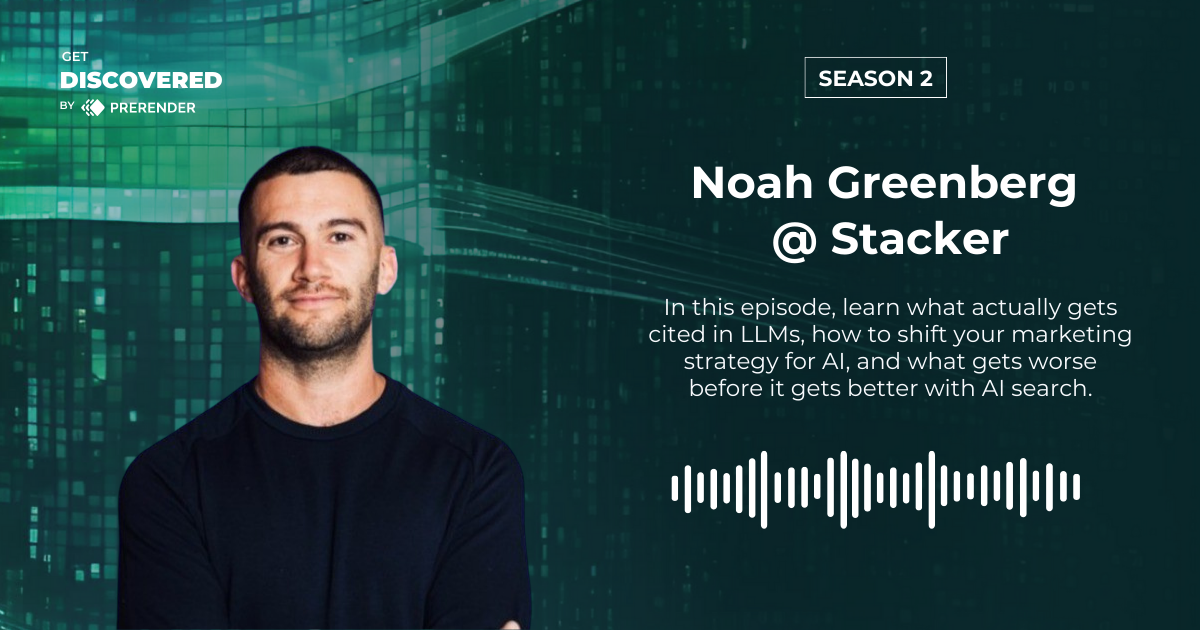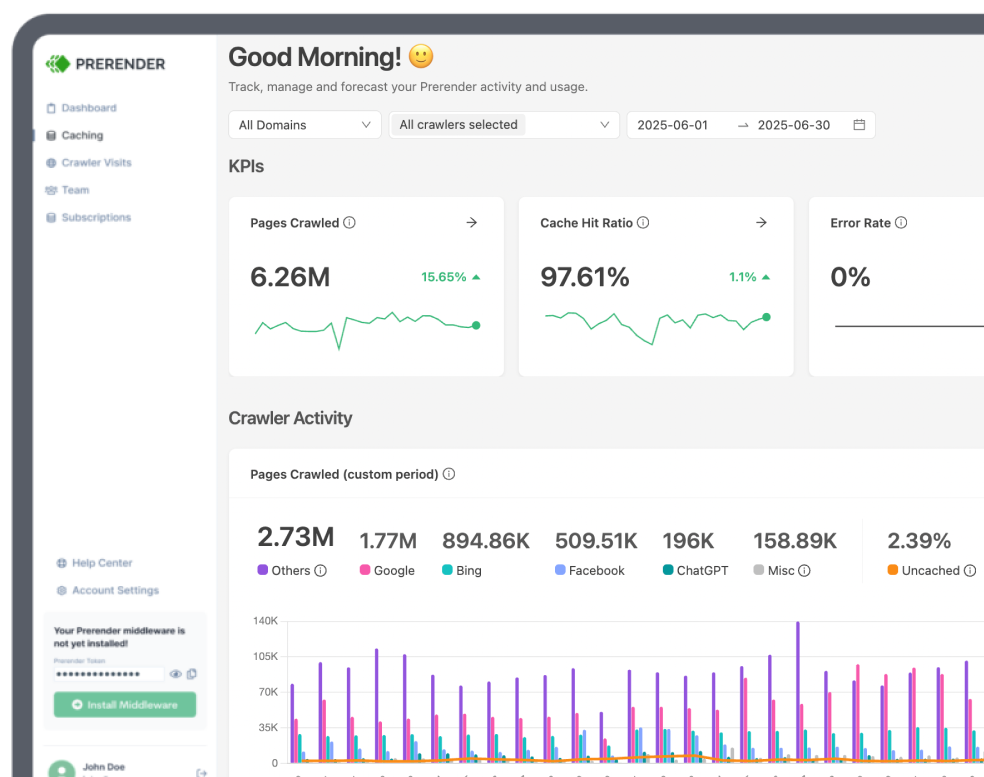In an era where a vague query like “movie with the blue alien” leads you directly to comprehensive details about “Avatar,” we witness the prowess of AI-powered search capabilities. This is not a futuristic concept but a tangible reality shaped by today’s technological advancements.
The search landscape has experienced a monumental transformation in recent years. The emergence of large language models, such as ChatGPT, has transitioned the focus from mere keyword-based searches to a more sophisticated understanding of user intent.
This shift has not only enhanced the intelligence of search engines but has also elevated user expectations. In this article, we dive into the differences between traditional search and AI-powered search.
What’s the Difference Between Traditional Search and AI-Powered Search?
Traditional methods have long served as the benchmark. However, with the advancement of technology and the evolution of user needs, the constraints of traditional search have become increasingly evident.
Traditional search relies on keyword-based algorithms and indexing.
By aligning queries with relevant content, it forms the cornerstone of information retrieval. While efficient in numerous scenarios, this approach is restricted to the literal interpretation of queries, frequently overlooking the subtleties and intricacies of human language.
The AI-powered search, on the other hand, represents a groundbreaking approach—it employs machine learning, natural language processing, and semantic comprehension.
Unlike traditional search, it deciphers the underlying intent and context of a query, furnishing more personalized and precise results.
AI can interpret the underlying purpose of a query, supplying more relevant outcomes. For instance, based on prior searches, it might be understood that a user seeking “apple” is interested in the technology company, not the fruit.
This contextual insight extends to complex inquiries, enabling AI-powered search engines to amalgamate information from various domains, such as nutritional studies and medical journals, to respond to a question about the Mediterranean diet. Furthermore, search engines evolve through user interactions, perpetually enhancing and individualizing the search experience.
Evolution and Impact
The progression from traditional search to AI-powered search constitutes a milestone in the digital information era. By redressing the inherent shortcomings of traditional methods and harnessing the innovations of AI, search engines are laying the groundwork for a more intuitive, efficient, and personalized search experience. The future of search has arrived, and it is energized by artificial intelligence, heralding a more interconnected, insightful, and responsive information landscape.
What is AI-Powered Search? Some Examples
Already, we can see a number of ways that AI is being used currently.
1. Google’s Search Generative Experiences (SGE)
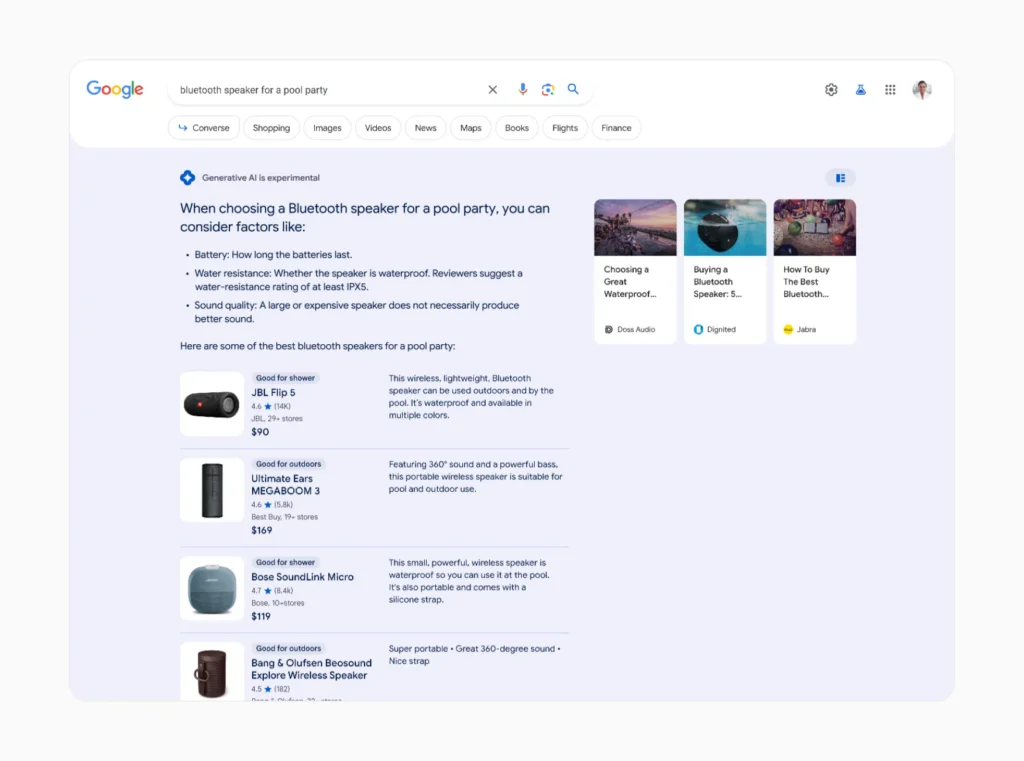
Google’s SGE represents AI-powered search in action.
Utilizing generative AI, SGE offers snapshots of essential information, comprehends intricate questions, and even aids in shopping by furnishing exhaustive product details.
2. Bing’s Integration of ChatGPT

Bing’s incorporation of ChatGPT into its search results illustrates another example of AI in search.
By leveraging generative AI models, Bing can furnish more conversational and context-aware replies to user queries.
3. Semantic Search Algorithms like Google’s BERT
Google’s BERT algorithm exemplifies the application of AI in discerning the context of words in search queries. Unlike conventional keyword-based search, BERT scrutinizes the relationships between words in a query, grasping nuances and subtleties.
4. Ecommerce Personalization through AI
AI-powered search is also revolutionizing the e-commerce sphere. Platforms like Amazon employ AI algorithms to comprehend user preferences, offering personalized product suggestions.
What Are the Cons of AI-Powered Search?
The implementation of AI-powered searches, though promising, presents certain challenges.
Businesses must carefully navigate:
- Technical complexity: the construction and maintenance of AI-powered search algorithms require specialized expertise.
- Data privacy and ethics: upholding ethical standards in user data utilization and adhering to privacy regulations are paramount.
- Integration with existing systems: the seamless blend of AI-powered search with existing infrastructure may pose challenges.
How Can You Optimize Your Website for AI Search?
There are a few ways to help ensure that your site is optimized for AI-powered search. While there are many tactics you can do—just like with traditional SEO—addressing the following points is a good place to start.
Improve Your JavaScript Rendering with Prerender.io
Roughly 97% of websites use JavaScript in some way, and AI crawlers can’t effectively render JavaScript. So, if you don’t use a JavaScript rendering solution like Prerender.io, there’s a good chance you won’t be featured in AI search results. This is especially the case for websites that rely heavily on JavaScript, such as large websites (1M+ pages), mid-sized websites with frequently changing content, and SPAs.
The same insight is shared by Patryk Wawok, a leading SEO consultant with Organic Hackers:
“Based on recent research, many AI crawlers are not rendering JavaScript on websites they visit. If your content is added to the DOM with the client-side rendering or after users’ interaction, it most likely will not be picked up by AI crawlers like SearchGPT or Claude, and your site won’t appear in their results,” Wawok says.
“Make sure the crucial content you want to rank in AI answers is visible in the pure HTML code on your site. Utilize server-side rendering or prerendering from Prerender.io to help crawlers find your valuable content.“
What is the impact of Prerender.io on AI search results, you asked? Here are the traffic results of a Prerender client adding the ChatGPT user agent to their account within 30 days. Want to try it yourself? Sign up for free.
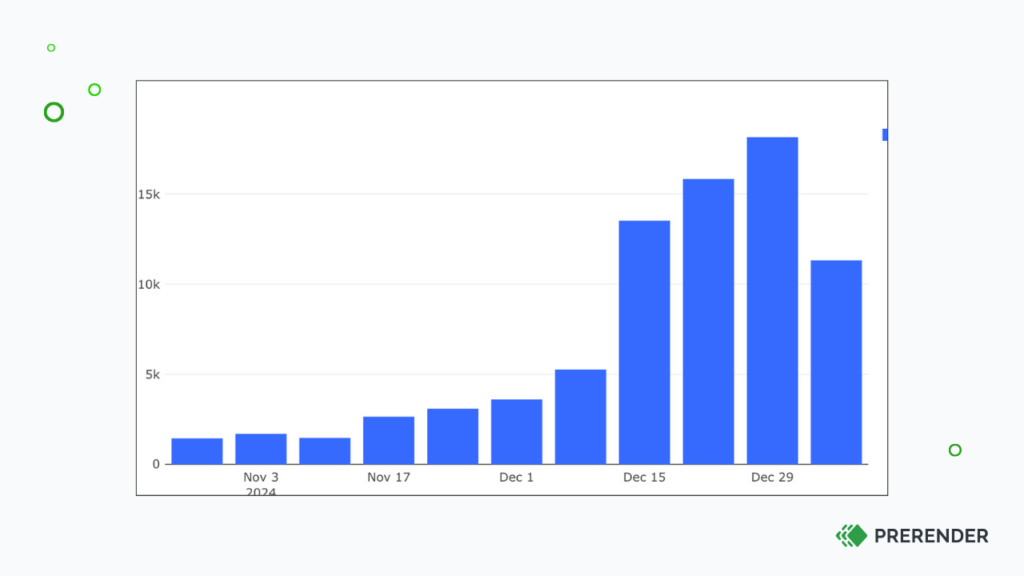
Implement Proper Structured Data
Use schema markup to provide clear, structured information about your content. This helps AI systems understand and categorize your site more accurately.
Here are some structured data types you might want to focus on:
- Organization
- Product
- Article
- FAQPage
- LocalBusiness
Implementing structured data will elevate your presence in both traditional and AI-powered search results. By doing so, you’ll help ensure that all of your pages—not just blogs or articles—will pop up in AI or traditional search results. This can include products, videos, FAQ pages, and more.
Curious to learn more? Read about proper structured data implementation here—it’s a detailed guide that covers what structured data is, its benefits, and how to implement it properly.
Focus on Conversational Writing
Generative engines like ChatGPT, Claude, Perplexity and Gemini are based on natural language processing (NLP). They write in conversational, human-like way. So, if you want your content to be featured in AI search results, you should match this style too.
When writing your content—whether for a product page, blog, or landing page—make sure to write in a way that AI would respond. This means writing clearly, answering questions directly, and using conversational phrases. Avoid being too formal with your writing style, when possible.
Improve Your Core Web Vitals Scores
Site speed and overall user experience are crucial factors in AI search optimization. Google’s Core Web Vitals (CWV), which measure loading performance, interactivity, and visual stability, are key indicators that AI systems use to assess the quality of a website.
Why Core Web Vitals are important for AI search:
- AI search engines prioritize user experience
- Faster sites allow AI crawlers to process content more efficiently
- Good Core Web Vitals scores signal a quality user experience to AI algorithms
By improving your JavaScript rendering, you should also see benefits to your CWV scores, too. As such, installing Prerender.io is an easy way to improve your CWV numbers. Most clients see strong improvements such as Haarshop, whose numbers improved to 99.
How Can Different Businesses Navigate AI?
The selection between traditional and AI-powered search requires careful consideration of unique business sizes, industry requirements, and specific needs.
- Small businesses: traditional search may fulfill basic requirements, while AI-powered search could provide a competitive edge in customer engagement.
- Medium and large businesses: evaluation of scalability, integration, and long-term strategy is essential. AI-powered search may present more comprehensive solutions for growth and personalization.
- Industry-specific implications: a thorough understanding of industry-specific needs and regulations is vital, whether in retail, academia, or other sectors.
- Best practices: the deployment of AI-powered search mandates adherence to best practices in data management, algorithm training, and user experience design.
- Role of data privacy, ethics, and UX: a steadfast commitment to ethical data practices, compliance with privacy legislation, and a user-centric focus are non-negotiable facets of AI-powered search implementation.
What’s the Impact of AI on the SEO Landscape?
The connection between artificial intelligence (AI) and Search Engine Optimization (SEO) has created a shift in digital marketing. As AI-powered search technologies mature, they will influence SEO methodologies and practices, especially in voice search, user intent, technical considerations, and best practices.
How AI-Powered Search Affects SEO
Beyond keywords, AI focuses on context, semantics, and user behaviour, necessitating a more sophisticated approach to SEO.
The primacy now lies with relevance, quality, and the overall user experience. This is great for crawling and indexing purposes.
As it is, we know that bots are trained to appreciate content that brings value to the user, so being able to identify performance insights and recommendations in advance will help you optimize your crawl budget.
Related: the free Crawl Budget Optimization Guide.
To add, AI can help:
- Create content that resonates authentically with users.
- Build a logically structured website with clear headings, intuitive navigation, etc.
- Provide a competitive advantage. You can use AI-powered search for keyword research, content optimization, and user behaviour analysis. Platforms like Clearscope and MarketMuse furnish AI-driven insights for content formulation and refinement.
- Provide profound insights into user behaviour, content efficacy, and search trends. Leveraging these tools facilitates data-driven decision-making and continuous refinement.
By comprehending the AI impact, embracing technological advancements, and adhering to established best practices, SEO professionals can traverse this novel landscape with assurance and creativity.
How Can I See How My Website Performs for AI SEO Tools?
Here are a few ways you can track how your site is performing in generative AI search engines like ChatGPT, Perplexity, and more.
Check your acquisition traffic in GA4.
You should see an increase in both referral and direct traffic (generative AI engines can fall under either). You can also look for the exact referral source (ex. ChatGPT) as well, of course.
Update your signup survey and ask customers directly.
Here at Prerender.io, we ask users in our signup survey how they found out about us. A year ago, it was organic search. This year? AI platforms. Don’t forget to update your signup survey so you can ask your customers directly.
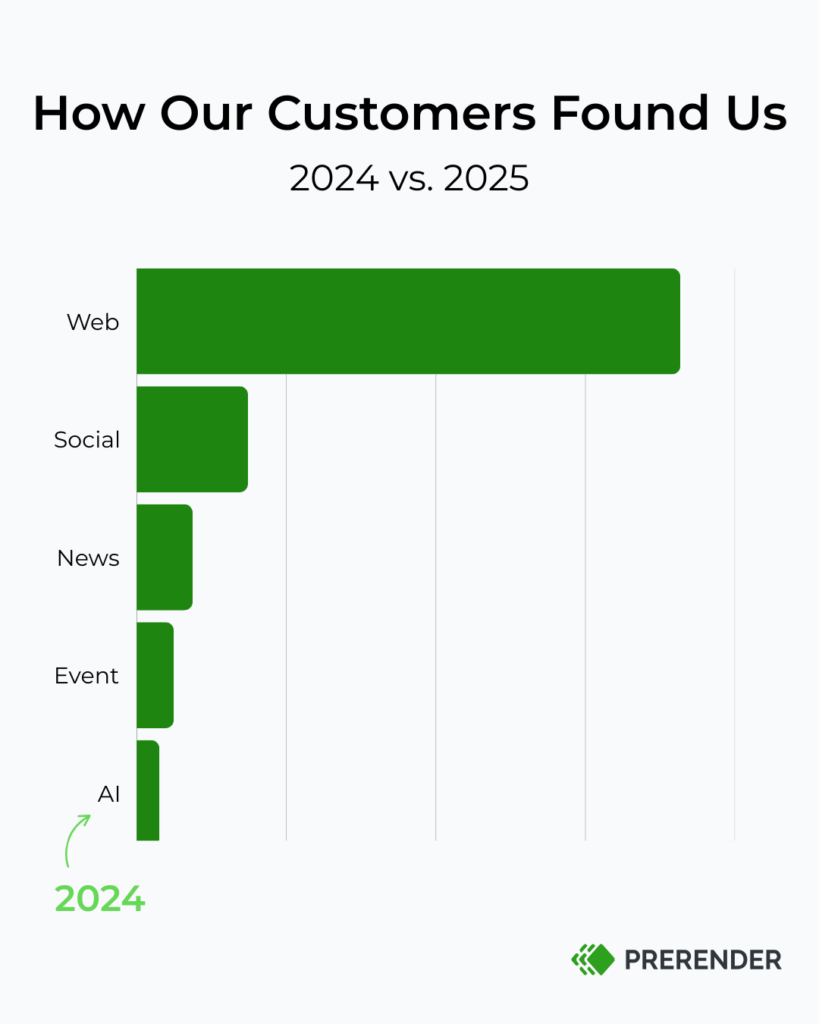
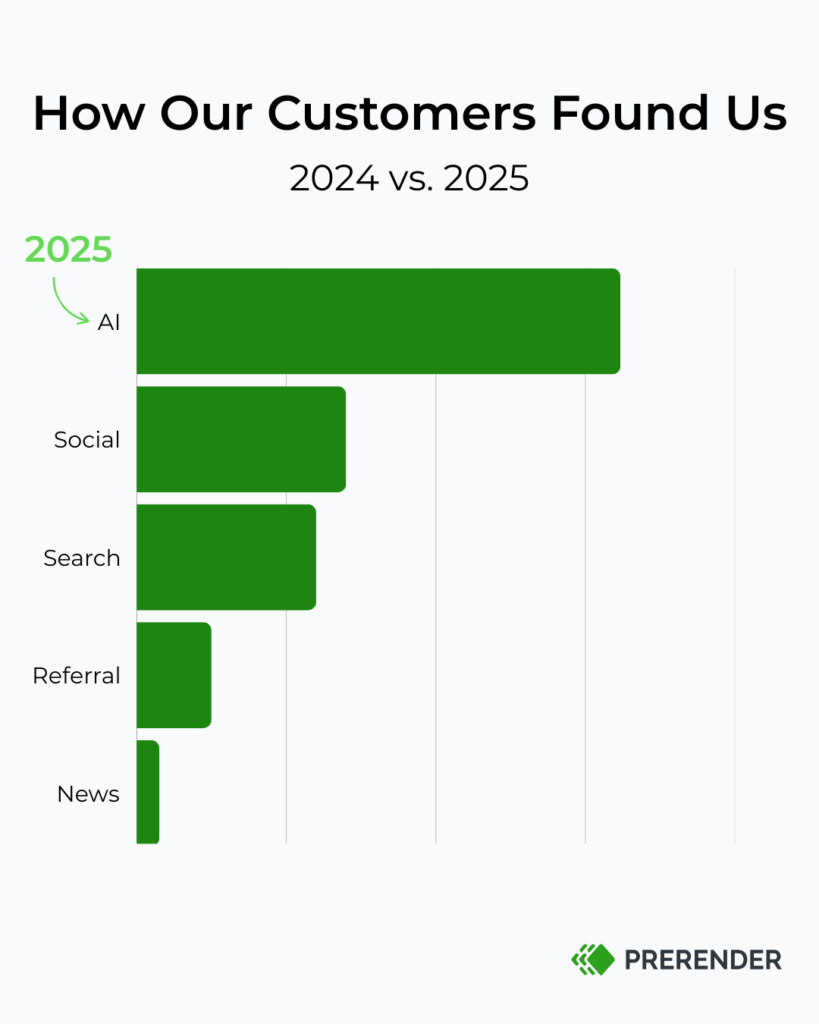
Use tools like Peec.ai.
This is the future of keyword tracking. In Peec.ai, you can monitor what percentage of LLM chats mention your brand, what the queries are, and track that against your competitors. For example, here’s how our visibility in AI platforms is doing against one of our competitors.
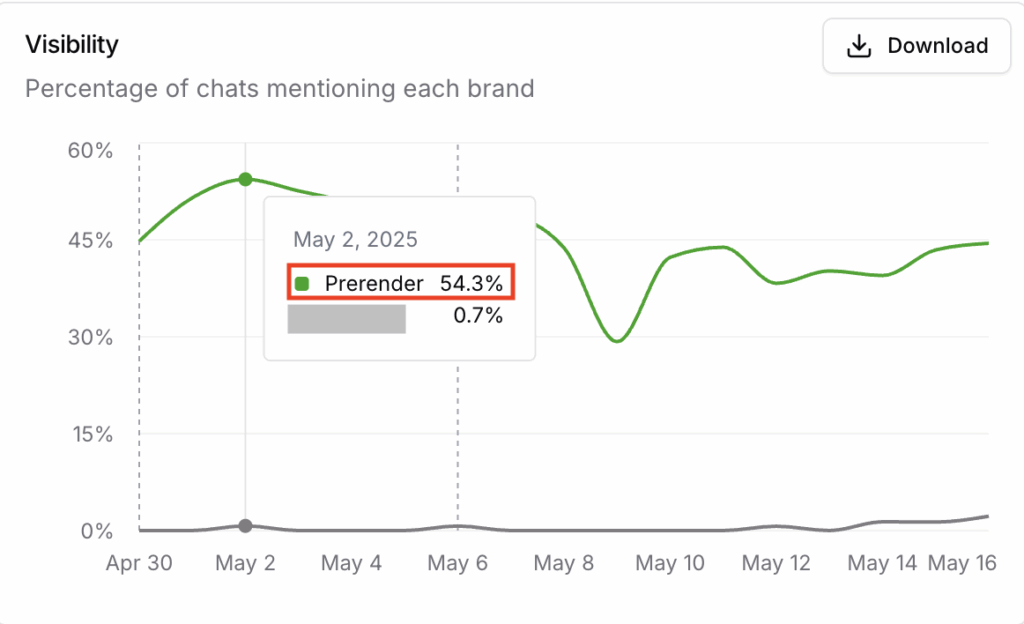
Lastly, you can get a free site audit.
Remember: AI SEO is largely based on traditional SEO, especially the technical aspects. If search engines can’t access your content, AI crawlers can’t either. Get your free site audit to access your report in minutes and see how you’re performing for search crawlers.
The Future of Search and AI
The integration of AI into the search landscape is a shift that’s redefining how we access and interact with information. From using machine learning for personalized experiences to ethical considerations in AI algorithms, the current trends are shaping more dynamic and intelligent searches.
By understanding the trends, exploring new technologies, and adopting a proactive and responsible approach, we can navigate this exciting landscape with confidence. Also, we are fully knowledgeable about the differences that cut across traditional search and AI-powered search.
FAQs – How Traditional Search Differs From AI Search
How Does Prerender.io Help Optimize Your Site for AI Search Results?
AI crawlers struggle to render JavaScript, and roughly 97% of websites use JavaScript in some way. Prerender.io is a prerendering solution that helps bots and crawlers understand your JS website: it converts your JavaScript pages into HTML, an easier format for crawlers to read quickly. Websites that rely heavily on JS will benefit most from Prerender, such as large websites with 1M+ pages, mid-sized websites with frequently changing content (such as ecommerce sites, job boards, travel, betting, and more), and SPAs.
What’re the Differences Between Traditional SEO and Generative Engine Optimization (GEO)?
As generative engines begin to claim greater search market share, traditional search engines like Google start to lose some of their monopoly. GEO is about more than just Google, such as YouTube, Reddit, generative engines like ChatGPT and Perplexity, and more. This means that—from a technical perspective—your site should be well-optimized for various bots and crawlers. Improving your JS rendering is a good first step.


